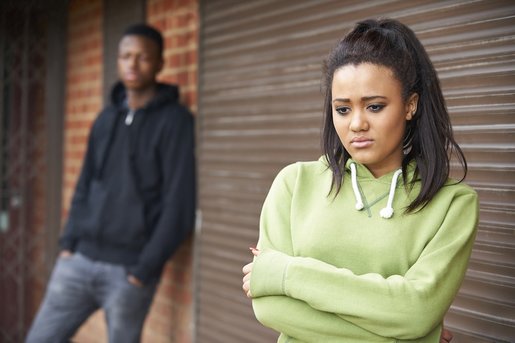A Guide to Getting a Restraining Order

Restraining orders, also referred to as protection orders, are furnished to prevent future instances of domestic violence, threats, or stalking. All restraining orders are issued by a judge once they take the sworn testimony of the victim into deliberation.
When talked about in a civil context, you'll hear restraining orders referred to as temporary injunctions. They can be issued to people or entities. For example, a business could receive a temporary injunction instructing them to stop activities that are causing a public nuisance. Or, parties in the midst of a civil lawsuit may be served a temporary injection so that they leave each other alone.
For the purposes of this article, we're going to focus on restraining orders in the criminal context. These are going to be cases where judges issue an order to keep a stalker or harasser at bay. Or to keep an abusive spouse from coming into contact with their spouse.
Proving The Need For A Restraining Order
A family lawyer can assist you in obtaining proof to warrant a judge granting a restraining order. As the victim, you'll need to prove to the presiding judge that a restraining order is necessary to prevent imminent harm. In cases of domestic violence, the judge may authorize a temporary restraining order based on the testimony of the victim.
The order will typically be enforced right away.
A formal hearing will be scheduled for the coming days, which is required if you want a long-term or permanent restraining order. You'll need to accompany your harassment restraining order attorney to court and provide ample evidence that your abuser stands a threat to your wellbeing and safety.
Evidence for a restraining order can be text messages, emails, phone calls, or written notes threatening to harm you. If you have a security camera in your home or workplace, you can present this to show how your abuser has stalked you. If your abuser ever lays hands on you, you should take photos of the marks they leave as soon as possible.
If the judge agrees, they will issue a permanent restraining order against the defendant. The length of the permanent order may be modified in the future based on a request by either party. Once a final protection order is used, the defendant will be informed of the specifics regarding what they can and cannot do.
What Happens When A Restraining Order Is Not Obeyed?
While your attorney will likely be able to get a restraining order issued, that won't always be the end of it. When it comes to more emotional cases, the defendant may disobey the protection order. In this case, the police can enforce the protection order by arresting the violator.
The violator will be charged with a crime like contempt of court. However, if the violator disobeys the protection order and causes harm to the victim, they will be charged with both breaking the rules of the restraining order and assault.
One of the reasons survivors of domestic violence appreciate restraining orders is because it’s a legal document saying that your abuser cannot get near you or communicate with you. If they try to talk to you or show up at your home, they are already breaking the law.
What Should I Discuss With My Los Angeles Restraining Order Lawyer?
If you've found yourself to be a victim of violence, harassment, or stalking, then it's important that you talk with a legal professional immediately. The sooner you sit down to disclose your side of the story and next steps, the sooner you can get a restraining order granted by a local judge.
In many cases, victims have questions regarding whether or not what they've experienced warrants a protection order. Some common questions that attorneys receive from clients are:
- Does the situation I experienced warrant a protection order?
- What evidence do I need to have for a restraining order?
- Are the local police likely to enforce the protection order?
- Are there things I can do to stay safe from the defendant?
Your attorney will be able to properly answer all of these questions for you. They may refer you to different resources, like a shelter, where you can seek safety for the duration of your case. It's best to ask your lawyer questions that are on your mind so that you have a full understanding of what's going to happen next in your case.
It's important to note that you don't have to contact a law firm to get a protection order, although it's highly recommended to do so. Victims of domestic violence or stalking can apply directly with their local prosecutor, also known as a district attorney, to get a restraining order. Most local police departments will act as a liaison between the victim and the local prosecutor.
COVID-19's Effect On Restraining Orders
With the recent changes undergone throughout the recent COVID-19 pandemic, domestic violence cases have skyrocketed. It's thought that the added stress of the pandemic, financial woes, social isolation, and more time spent at home is causing this increase. Unfortunately, the police and local court systems are lagging in keeping up with the increasing number of restraining orders.
There are a number of organizations that are helping to assist with these cases during the pandemic. These include the National Domestic Violence Hotline and End Violence Against Children. The contact information for both of these resources is readily available online for those who need it.
Many may be concerned with the virus. However, these shelters are taking the necessary precautions to ensure that people stay safe and away from domestic violence situations. One shelter in Nashville has brought in RVs to provide adequate housing for abuse victims to help respect social distancing at the shelter.
A large number of courts have shut down or restricted their hours during the pandemic. This has caused a large postponement in trials and hearings. However, many states have tried their best to keep family law courts open. Many have restricted the cases to those who are seeking a domestic violence restraining order. It's best to check with your local state courts to see if they'll be open to hearing your case and granting your order. Both your local attorney or the local police department can help you with this necessary task.
